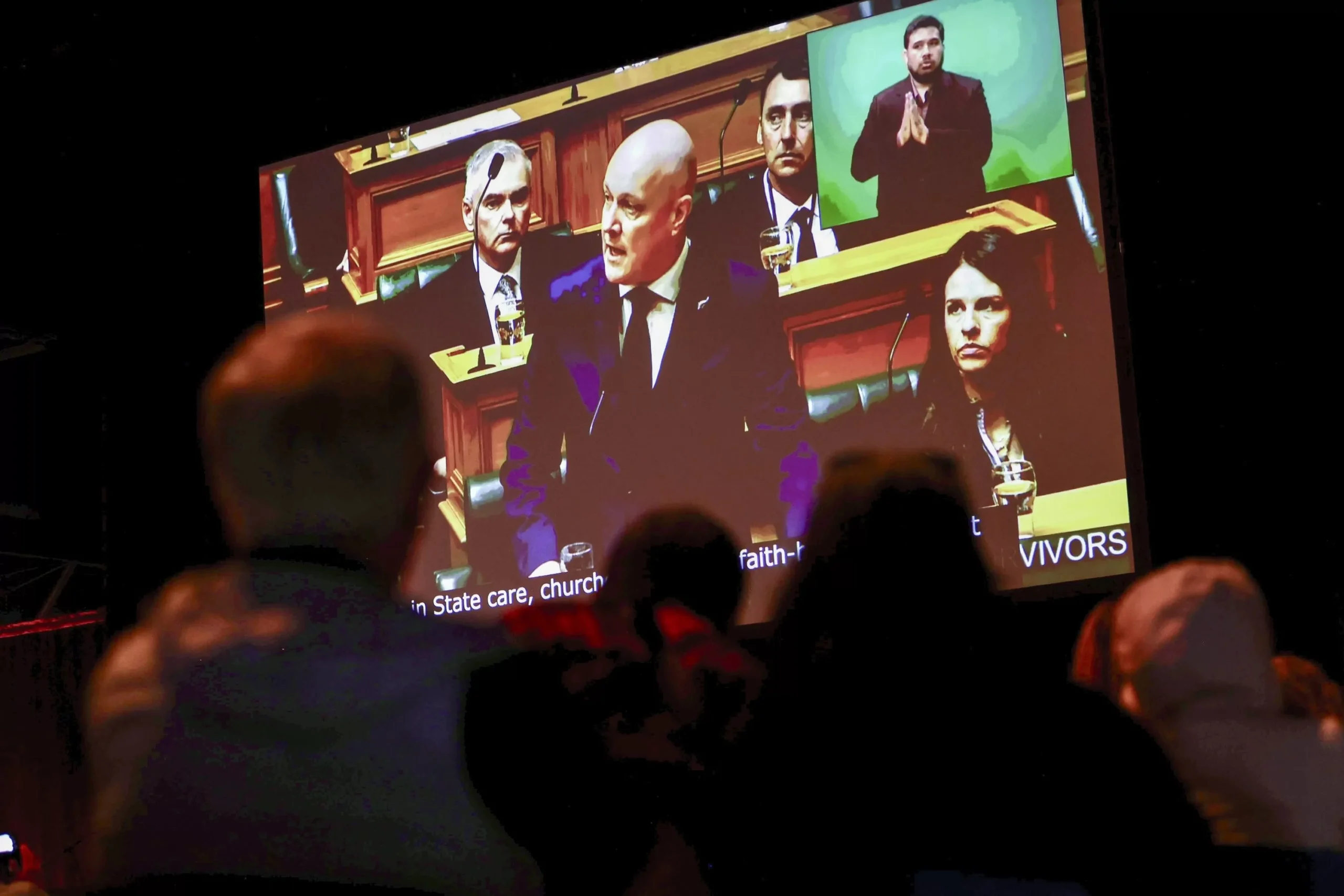New Zealand’s Prime Minister Christopher Luxon has taken a bold and commendable step towards addressing a dark chapter in the country’s history. In a historic moment, Luxon made a formal and unreserved apology in Parliament on Tuesday for the widespread abuse, torture, and neglect of hundreds of thousands of children in state care over several decades.
The apology comes after the release of a damning report by the Royal Commission of Inquiry into Historical Abuse in State Care, which uncovered horrific cases of physical, sexual, and emotional abuse of vulnerable children in state-run institutions. The report also highlighted the failure of the government to protect these children and hold those responsible accountable.
Luxon’s apology was a long-awaited and much-needed acknowledgment of the pain and suffering endured by these children and their families. It was a powerful and emotional moment as the Prime Minister stood in front of the Parliament and expressed his deep regret and sorrow for the atrocities committed in the name of care and protection.
He said, “On behalf of the government, I offer a formal and unreserved apology to the victims and survivors of abuse in state care. We failed you. We let you down. And for that, we are truly sorry.”
The apology was not just a symbolic gesture but also a commitment to right the wrongs of the past and ensure that such abuses never happen again. Luxon promised to take concrete actions to address the systemic failures that allowed these abuses to occur and to provide justice and redress to the victims and survivors.
One of the key actions announced by the Prime Minister was the establishment of a new independent body, the Mana Ake Oranga Trust, to provide support and services to those who have experienced abuse in state care. The trust will work closely with victims and survivors to ensure their voices are heard and their needs are met.
Luxon also announced a comprehensive redress scheme for the survivors, which includes financial compensation, access to counselling and support services, and a formal apology from the government. This scheme will be developed in consultation with the survivors and will be survivor-focused, ensuring that their needs and wishes are at the forefront.
The Prime Minister also acknowledged the intergenerational impact of this abuse and promised to take steps to address the ongoing trauma and healing needs of the victims’ families and communities. This includes providing support for the children of survivors who may have been impacted by their parents’ experiences in state care.
Luxon’s apology was not just directed towards the victims and survivors, but also to all New Zealanders. He recognized that the abuse in state care was a collective failure of the government, society, and individuals. He urged all New Zealanders to take responsibility and work together to create a safer and more compassionate society for all children.
The Prime Minister’s apology was met with a standing ovation from all sides of the Parliament, demonstrating the unity and commitment of the government and opposition to address this issue. It was also welcomed by the survivors and their advocates, who have been fighting for justice and recognition for decades.
The apology was a significant and necessary step towards healing and reconciliation for the victims and survivors of abuse in state care. It sends a powerful message that their voices have been heard, their experiences have been acknowledged, and their suffering will not be forgotten.
Luxon’s apology also sets a precedent for other countries to follow in addressing historical abuse and trauma. It shows that a government can take responsibility for its past failures and take meaningful actions to right the wrongs and support the survivors.
In conclusion, New Zealand’s Prime Minister Christopher Luxon has shown great leadership and courage in making a formal and unreserved apology for the widespread abuse, torture, and neglect of children in state care. His commitment to taking concrete actions to address this issue and support the survivors is a positive and inspiring example for all. Let us hope that this apology marks the beginning of a new era of healing, justice, and compassion for all children in New Zealand.





![Complete BritRail Pass Guide [Types, How to Use It, Pros + Cons]](https://inside-news.uk/wp-content/uploads/2025/06/00221EB4-BCA2-4DBB-6CD4-83DBC37D71FA-120x86.webp)
















